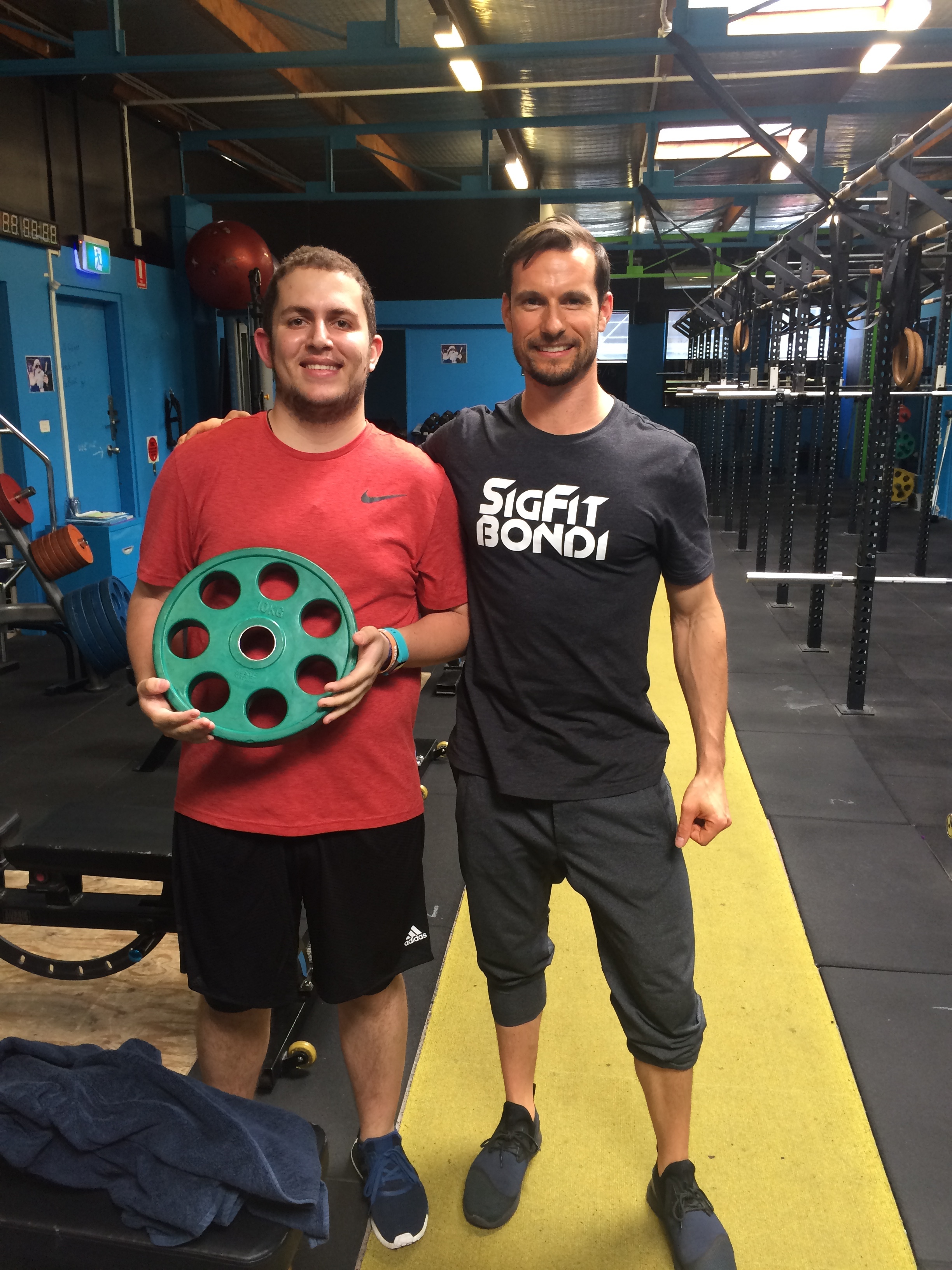Overconsumption of calories is a problem. A big problem. From expanding waistlines to a burgeoning health crisis, the global obesity epidemic is wreaking havoc on our health systems. So just why are we consuming so many calories?
The fact is we are all mindless eaters. Each of us makes more then 200 nearly subconscious food choices every day.
Here are 4 major reasons why you might be consuming more than you think...
Supercharge Your Fat Loss!
Transformations: Benefits Beyond the Body
You see a lot of transformations online. Heck I love posting some of the amazing transformations my clients have achieved - see here. However, what I would like to emphasise here is that, behind the improvement in body shape, is a myriad of other changes that, for me, outweigh the physical changes one undergoes.
So this post has largely been contributed by my clients, who often tell me about how much other aspects of their lives have improved since changing their body. Enjoy!
HELP! I haven't trained for a week - what program should I follow?
Holiday's are a glorious thing. They allow you to rest, recuperate and recharge. Stress levels are lowered, we get more sleep, we eat good food. However, on returning from holiday after a week (or two, or three) off, the gym can seem like a traumatising proposition. It's akin to returning back to school after the summer break. Everything feels odd and not particularly pleasant.
So, having taken some time off, what is the best approach to take with regard to the training you should do? Should you just carry on with the program you were doing pre-holiday? Should you jump straight into a new program?
2017 - A Year In Review
Kieran's Story
I would wholeheartedly recommend Paul to anyone trying to achieve any
training/nutrition goals - he walks the talk and is in great shape
year round himself. His approach to training and nutrition is
sustainable and the way he treats his clients is what makes someone
like me loyal to the Physique Wise brand
Bottoms Up!
Why is Obesity Becoming a Global Health Disaster?
Peter's Story....
Adib's Story
"I've never been one for fitness or dieting even though I come from a sports background. And I've always been self-conscious about the way I look: used to always half-dip in a pool and take my shirt off just as a dive in. Clothes sometimes struggled to fit and don't even get me started on EVERY SINGLE PERSON I SAW IN LEBANON (LITERALLY ALL OF THEM CALLED ME FAT).
But over the past few years I've let myself go due to a severe knee injury, arm injuries and working at a patisserie for 18 months.
7 weeks ago I started training with Paul and it has been absolutely life changing.
The Human Metabolism, The Obesity Epidemic and Strategies to Move Forward
Obesity represents one of the most serious global health issues we face today, with the World Health Organisation declaring it the ‘greatest health threat facing the West’. Mortality rates increase as BMI’s above 25 increase. This is due to the direct link between BMI and susceptibility to many degenerative diseases, the most important being Type II Diabetes (Speakman, 2004). An important point to make here is that the effects of obesity on health are entirely reversible if the person in question loses weight. Hence the fact that obesity is labelled a ‘preventable’ disease.
“Obesity is a problem of imbalance between energy intake and expenditure” (Speakman, 2004)
Is 'Plateau' A Dirty Word?
Mike's Story
Client Mike competed in the Noosa Triathlon this afternoon, raising an amazing total of $10,500 for the charity 'Beyond Blue'. This was Mike's first attempt at a Triathlon, which involves a 1.5km Swim, a 40km bike ride and a 10km run to finish! Mike began training with me for the triathlon 4 months back, and this is what he had to say:
Dan's Story
Client Dan came to me as a man on a mission. So far this guy has absolutely turned his life around. He is jetting off home to the UK to get married (many congratulations!!!) before returning to continue to the impressive progress he has achieved so far. Here is what Dan has to say about his experience so far...
FOOD CRAVINGS!!!
According to obesity researcher, Biochemist and Neurobiologist Stephan Guyenet, cravings have ancestral roots. When we were cavemen, many thousands of years ago, ensuring we had enough calories to survive and reproduce was of paramount importance. We are primed, therefore, to be motivated by foods that have a high reward value. These foods tend to have the highest concentrations of one (or a combination of) sugar, starch, protein, fat, salt and glutamate. However, we now find ourselves in a situation where we can regulate our food intake rather easily. We do not have to hunt and forage for a foods. However, our brains have not evolved at the same pace as our environment.
Guyenet has termed this an 'evolutionary mismatch'. That is, a situation in which once useful traits become harmful once they're dragged into an unfamiliar environment.
So why do we crave some foods more than others? Why are Brussels sprouts far less seductive than ice cream, for example?
It appears we have developed a conditioning for foods that deliver the most calories per bite. Flavours and smells are a quick way for the brain to gather information about the nutritional quality of a food before it enters the digestive tract. When we eat foods that deliver the properties we seek, our brain releases dopamine, which drives us to seek the favours, smells, textures, appearances and places we've learned to associate with foods that contain those properties.
Chocolate has been found to be the most craved food in America
As Guyenet explains: -
"As far as the brain is concerned, the fact that Brussels sprouts are loaded with vitamins and minerals counts for approximately nothing, because they are low in calories. In contrast, we crave ice cream because our brains know that its flavour, texture, and appearance predict the delivery of a truckload of easily digested fat and sugar. Having evolved in an era of relative food scarcity, the human brain interprets this as highly desirable and draws us toward the freezer."
The unconscious parts of the brain can drive us to seek out these highly valuable foods, even if we aren't hungry. This is why most of us can eat dessert, even after a large meal.
So what can we do to avoid these cravings? Well the first point to make here is that if someone were looking to quit smoking, they wouldn't leave packets of cigarettes lying around their home or office. In fact, you would do all you can to actively avoid cigarettes, cigarette smells, cigarette advertising etc. Similarly with food it is important to limit what Guyenet calls ‘cue exposure’, such as:
- Try to avoid advertisements on TV, magazines etc
- Controlling home and work food environments
Guyenet also suggests focusing on simple, unrefined foods such as fruits, vegetables, meat, dairy, potatoes, sweet potatoes etc. These foods do not have the high concentrations of nutrients that spike the dopamine response in the brain.
The reward associations that you form with certain foods can be forgotten over time - therefore ‘starve a craving’. Cheat days/meals can re-active a craving for a certain food.
















